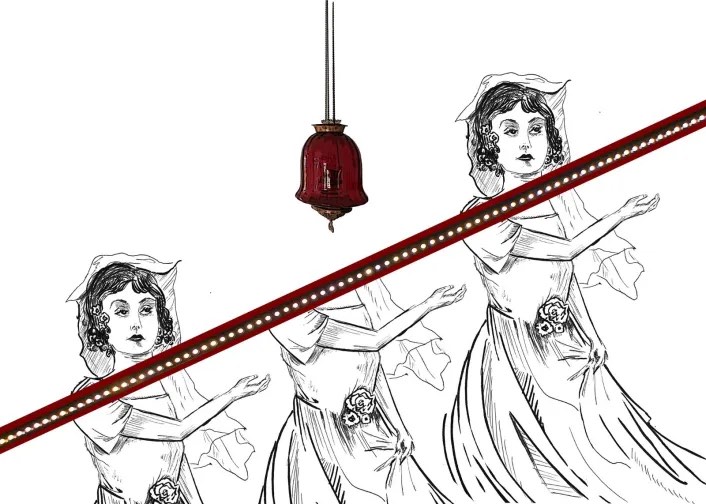Upon reading the premise for Sav Sood and Alex Rawnsley’s new BT Studio musical Songs of the Silenced, one could be forgiven for thinking that this ground was slightly too well-trodden. In this cabaret-style series of solo performances by eleven well-known women from Greek mythology, the influence of historical revisionism musicals such as Hamilton and especially Six is never far from view, nor are the echoes of similar recent cultural attempts to ‘give voice’ to the women of antiquity (including Madeline Miller’s Circe, which the show namedrops).
However, in the maelstrom of reinterpretations of misunderstood Homeric women and Greek tragedy revivals, the show’s lyrics stand out for consistently centring the core themes and questions asked by the ancient texts themselves — perhaps the most striking engagement with antiquity is the choice to include a Muse (Rawnsley), an ambiguous piano-playing figure who is variably a suitor, therapist, or mere musical accompanist to our heroines.
In the songs themselves, there is the Iliad’s central question of whether a glorious death is preferable to a long and uneventful life, captured by Thetis (Eliza Niblett), belting in anguish as she resigns herself to her son Achilles’ death; later, a comic duet between the Oresteia’s dysfunctional mother and daughter Clytemnestra and Electra (Lara Bulloch) explores to what extent revenge can be justified (the cast and crew also deserve praise for their adaptability — Rawnsley stepped in as Clytemnestra due to the original actor’s illness, which occasioned a nifty comic device implying Electra’s matricide had already occurred). Furthermore, given how often this particular genre resorts to exploring how women have been oppressed historically, it was refreshing to see Sood and Rawnsley write about mythological women who achieved happiness — Atalanta (Sood) enters a loving marriage with a man who is her equal, and Eurydice (Bulloch) sings poignantly yet not regretfully of the ‘golden times’ she had with Orpheus, in a folk-influenced number which laudably differentiates itself from the music of Hadestown.
In the uninspiring space of the BT Studio, set designers Alfie Carter and Ellie Moriuchi excel at creating the ambience of a cabaret show, through an abundance of red velvet and a distressed dressing table poised in the corner as though about to be used by a singer before her grand performance. This effort is mirrored both by Catherine Allport’s costumes (lots of flowing, jewel-hued maxi dresses which manage to evoke both Classical Greece and the Prohibition era), and by Sood and Rawnsley’s compositions. The score makes room for the brash belting we’ve come to expect from contemporary musical theatre, but also for Circe (Leah O’Grady) as a sultry jazz alto, and for an unexpected, unhinged comic soprano take on Medea’s (Eleanor Bogie) regrets about killing her children.
In light of the laudable decision to write female roles both with a wide range of stories and for a variety of voice types, it is regrettable that there are rare moments where Sood and Rawnsley forget the uniqueness of their subjects in favour of writing a certain ‘type’ of song. Perhaps the most meaningful line in Penelope’s (Sood) number (‘faithfulness in women is just pragmatism’) only comes in her spoken dialogue with the Muse after a generic loneliness ballad, while Helen’s (Niblett) lyrics focus excessively on her role as a pawn of the goddess Aphrodite, without ever really questioning if Helen actually had any agency in leaving her home and marriage with Paris. However, while there are minor concerns about potentially simplistic interpretations of mythology, the show on the whole provides an excellent and varied musical introduction to some central questions surrounding women in ancient literature.



